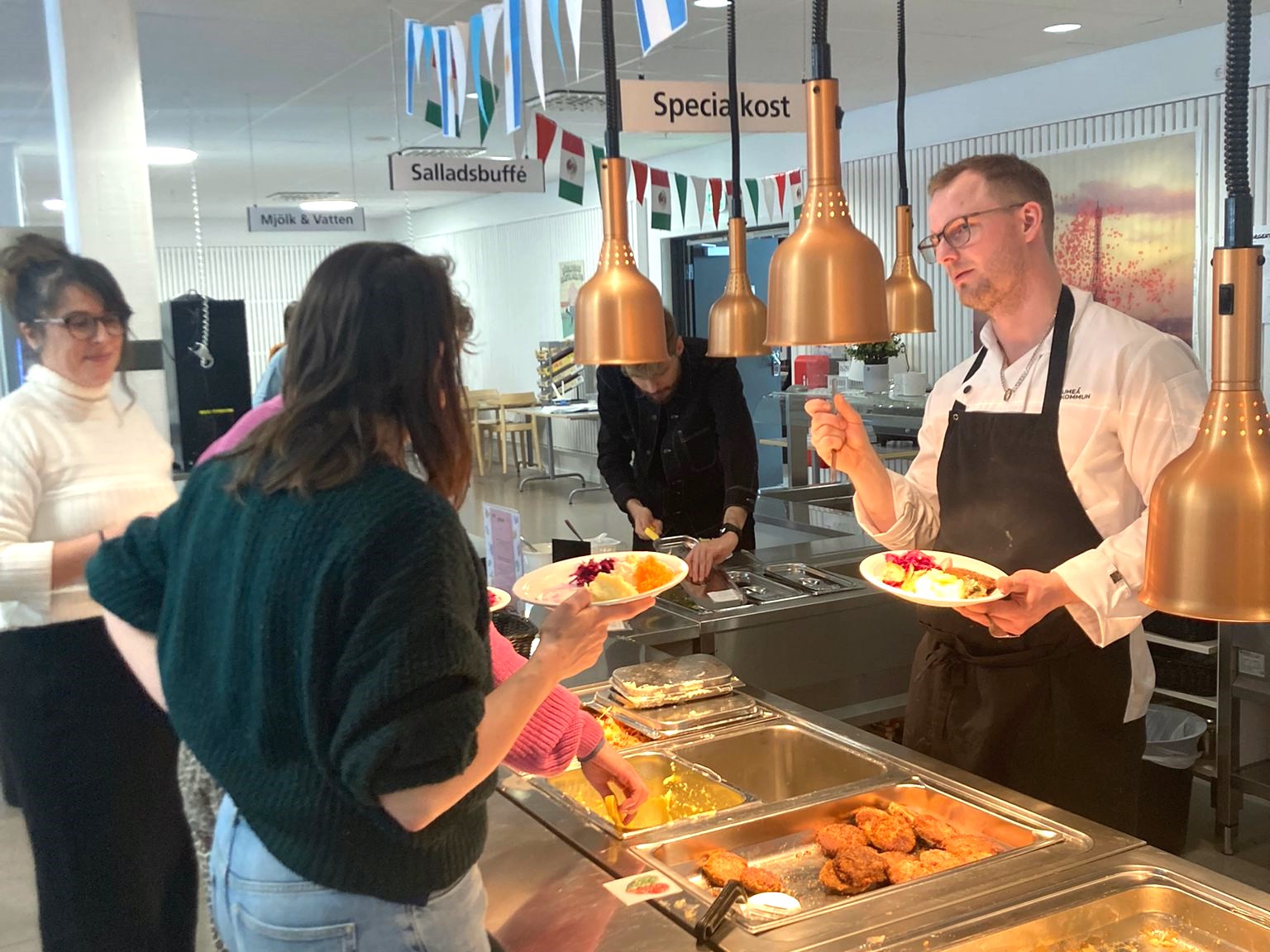
The Innovation Radar is a European Commission initiative to identify high potential innovations in EU-funded projects. Its goal is to give innovative approaches more visibility and make them more accessible to the broader public.
Recently, one of SchoolFood4Change’s publications in the thematic area of public procurement was officially identified as an innovative tool with the potential to improve pubilc procurement processes across Europe.
In collaboration with its project partners, counting procurement experts from 18 European cities (including the regions of Valencia and Dordogne province, as well as the renowned procurement lawyer Abby Sample), the Schoolfood4Change project has published a guide for professionals working in public food procurement, presenting ‘Innovative Criteria and Models for Procurement of Sustainable and Healthy School Meals’.
The guide draws on the expertise from leading countries in the field of sustainable public food procurement. It is specifically tailored to procurers responsible for food and catering tenders at the municipal level, as well as policy makers, contracting authorities, farmers, producers and consumers in the food value chain, who are in the position to influence procurement procedures and policies.
With the aim of providing recommendations that are as practical as possible and legally sound, the resource proposes concrete selection and award criteria, as well as technical specifications, relevant in the public procurement tendering process. These are, for example, criteria and measures that help increase food awareness in schools, as SchoolFood4Change builds upon the strategic role of food education in shaping dietary habits and fostering sustainable food culture.
More precisely, this tool presents a baseline set of procurement criteria recommendations, designed to be applied by cities, aiming to make food procurement processes for schools more sustainable. Additionally, it offers an advanced set of criteria that can help cities achieve ambitious goals, such as reducing the climate impact of the food procured for school meals.
Many cities are not aware that the ambition of improving food education in schools can be incorporated into public procurement tenders using appropriate criteria. The guide showcases good practice examples of innovative procurement models to make the diverse range of options more tangible for procurement experts. For instance, the report illustrates how Milan’s municipal company for servicing schools with food (called Milano Ristorazione) enriched its tender in 2023 with an educational criterion, leading to the implementation of educational activities in schools.
Other sections of the guide outline how the project partners, which include cities like Vienna (Austria), Lyon (France) and Ghent (Belgium) have adapted food procurement to offer tastier vegetarian dishes. Furthermore, the report also provides guidance on increasing the participation of small-scale farmers in public tenders. Examples include Malmö’s Dynamic Purchasing System and Umea’s free slot tenders, specifically targeting 10% of food sourced from small-scale farmers.

Other sections of the guide outline how the project partners, which include cities like Vienna (Austria), Lyon (France) and Ghent (Belgium) have adapted food procurement to offer tastier vegetarian dishes. Furthermore, the report also provides guidance on increasing the participation of small-scale farmers in public tenders. Examples include Malmö’s Dynamic Purchasing System and Umea’s free slot tenders, specifically targeting 10% of food sourced from small-scale farmers.
SchoolFood4Change aligns with the New Green Deal´s Farm to Fork strategy and complements the objectives of related EU policies, including the School Fruit, Vegetables and Milk Scheme, which intends to help children develop healthy eating habits, and the European Child Guarantee, aimed at preventing and fighting children’s social exclusion by guaranteeing their access to healthy nutrition.
Public procurement amounts to 14% of EU’s GDP (European Commission 2023) and is a powerful market force [1], which is why the potential of this tool to drive change towards more sustainable food systems should not be underestimated.
Find the SchoolFood4Change guide for cities and procurement experts at municipal level here: Innovative Criteria and Models for Procurement of sustainable and healthy School Meals.